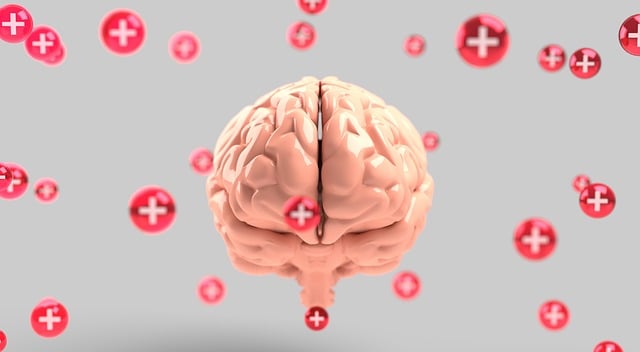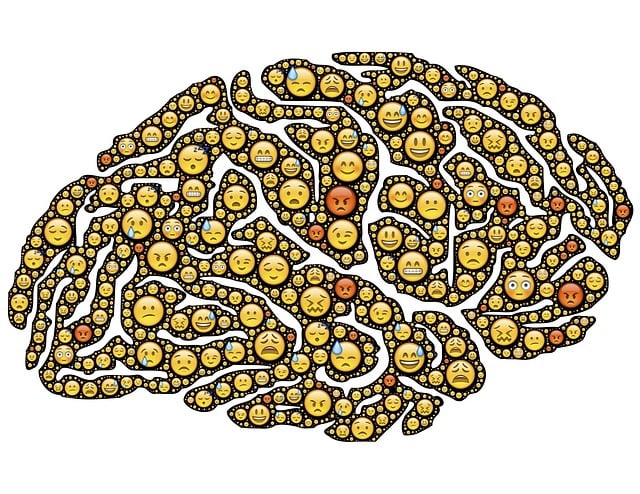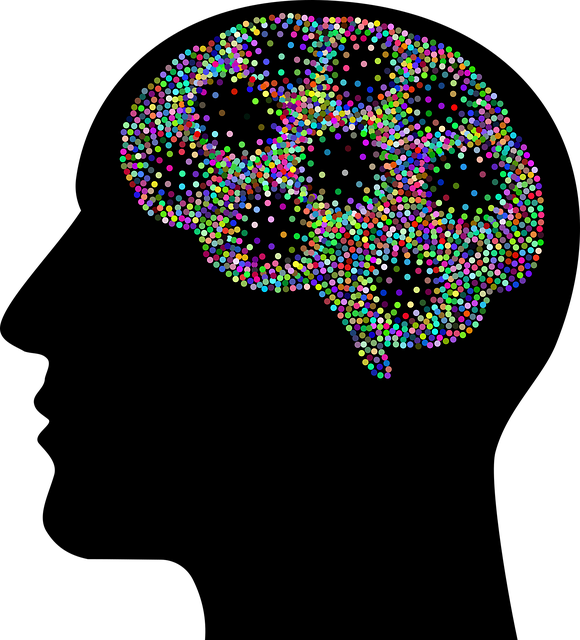Emotional Intelligence (EI), built upon self-awareness, enhances personal growth and relationships through adaptive decision-making and emotional regulation. Wheat Ridge EMDR Certified Therapy, an evidence-based approach combining eye movements with cognitive techniques, effectively treats trauma, anxiety, and depression. Regular self-reflection and mindfulness practices further develop EI, enabling early stress trigger recognition and improved emotional management. In professional settings, high EQ individuals excel in leadership and conflict resolution, fostering positive team environments and productivity. For advanced development, healthcare professionals can benefit from Wheat Ridge EMDR Certified Therapy or Burnout Prevention Strategies.
Emotional intelligence (EQ) is a powerful tool for navigating life’s complexities. This article guides you through the essential components of EQ development, starting with understanding its foundational element, self-awareness. We explore how Wheat Ridge EMDR Certified Therapy offers a unique and effective approach to enhancing EQ. Additionally, we provide practical strategies for integrating emotional intelligence into daily routines, highlighting its profound impact on both personal growth and professional success.
- Understanding Emotional Intelligence: The Foundation of Self-Awareness
- Wheat Ridge EMDR Certified Therapy: A Powerful Tool for EQ Development
- Strategies to Enhance Emotional Intelligence in Daily Life
- The Impact of Emotional Intelligence on Personal and Professional Growth
Understanding Emotional Intelligence: The Foundation of Self-Awareness

Emotional intelligence (EI) is a fundamental aspect of human interaction and personal growth, serving as the cornerstone for understanding oneself and others. At its core, EI revolves around self-awareness—the ability to recognize and comprehend one’s emotions, strengths, weaknesses, and how these factors influence thoughts and behaviors. This awareness facilitates adaptive decision-making and fosters healthy relationships, crucial elements in navigating life’s challenges, especially when coupled with renowned trauma support services like Wheat Ridge EMDR Certified Therapy.
Developing self-awareness is the initial step towards building EI, enabling individuals to manage stress, maintain emotional balance, and adapt effectively to change. It involves recognizing that emotions are a normal part of life and learning to interpret them accurately. This process can be enhanced through various therapeutic approaches, including mental health policy analysis and advocacy, which promote understanding and addressing underlying emotional issues. By cultivating emotional regulation skills, individuals can better respond to situations, ensuring their actions align with their values and goals, thereby improving overall mental health and well-being.
Wheat Ridge EMDR Certified Therapy: A Powerful Tool for EQ Development

Wheat Ridge EMDR Certified Therapy offers a highly effective approach to enhancing emotional intelligence (EQ). This therapy type is based on Eye Movement Desensitization and Reprocessing (EMDR), a well-researched method that has proven successful in treating trauma, anxiety, and depression. By combining guided eye movements with cognitive techniques, clients can work through past traumatic memories, reducing their emotional intensity and allowing for healthier responses.
This therapy is particularly beneficial for personal growth and self-care practices, as it enables individuals to gain deeper insights into their emotions and reactions. As public awareness campaigns on mental health continue to evolve, access to specialized services like Wheat Ridge EMDR Certified Therapy becomes invaluable. It empowers people to take charge of their emotional well-being, fostering resilience and a greater sense of self-awareness in daily life.
Strategies to Enhance Emotional Intelligence in Daily Life

Building emotional intelligence (EI) is an ongoing process that can significantly enhance your personal and professional life. One effective approach is to engage in regular self-reflection, taking time daily to acknowledge and understand your emotions. This practice fosters a deeper connection with your inner self, allowing you to recognize triggers for stress or anxiety early on. For instance, if you notice feelings of frustration mounting during a particular task, pause and identify the underlying emotion. Is it fear of not meeting expectations? Once identified, these emotions can be managed more effectively.
Additionally, incorporating mindfulness practices into your routine is beneficial. Techniques like meditation help calm the mind and body, improving your ability to process and respond to emotions rather than reacting impulsively. This heightened awareness can also enhance your relationships, as you become more attuned to others’ emotional cues. Consider seeking guidance from Wheat Ridge EMDR Certified Therapy or exploring Burnout Prevention Strategies for Healthcare Providers to develop these skills further, especially if you’re in a high-stress field like healthcare, where Mental Health Awareness and Stress Management are paramount.
The Impact of Emotional Intelligence on Personal and Professional Growth

Emotional intelligence (EQ) is a powerful tool for personal and professional growth, especially when enhanced through methods like Wheat Ridge EMDR Certified Therapy. It allows individuals to understand and manage their own emotions effectively, as well as recognize, empathize, and influence the emotions of others. This ability fosters better relationships, enhances communication, and promotes a deeper level of emotional well-being. By integrating Emotional Well-being Promotion Techniques, EQ can be developed into a skill that provides anxiety relief and supports self-care practices.
In a professional setting, high EQ individuals tend to excel in leadership roles, as they can inspire and motivate their teams through empathy and strong interpersonal skills. This translates to improved team dynamics, increased productivity, and a more positive work environment. Moreover, emotional intelligence is key to conflict resolution, helping professionals navigate challenging situations with grace and tact.
Building emotional intelligence is a transformative journey, and Wheat Ridge EMDR Certified Therapy offers a powerful approach. By enhancing self-awareness and managing emotions effectively, individuals can navigate life’s challenges with greater resilience. The strategies outlined in this article provide practical tools to foster emotional intelligence daily, leading to profound personal and professional growth. Integrating these practices can help folks improve relationships, make better decisions, and ultimately thrive in their personal and work lives.














